Palladium Propelled To Record Highs By Russia Supply Concerns

Palladium prices have rocketed 80% this year to all-time highs as financial sanctions on Russia, which produces 25-30% of global supply, disrupt shipments and worsen a supply shortage.
Palladium is used by automakers in engine exhausts to reduce emissions.
From around $1,900 an ounce at the start of the year, palladium surged to $3,440.76 on Monday, surpassing 2021's record of $3,017.18.
Graphic: Palladium prices,
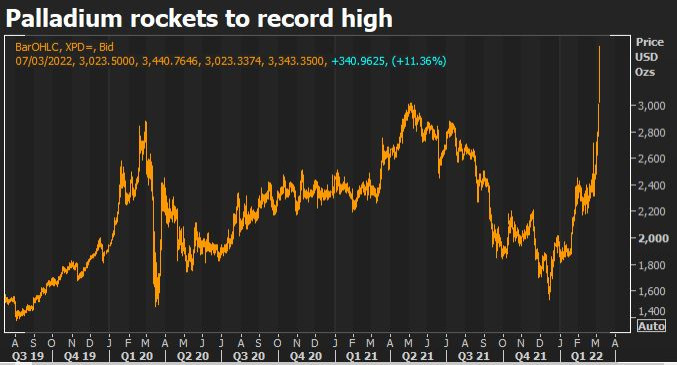
Other Russian-produced resources including oil, wheat, aluminium and nickel have also spiked as sanctions imposed by countries including the United States and the European Union prompt many banks and shippers to stop handling Russian goods.
The closure of much of Europe to flights from Russia has also complicated airborne transport of palladium.
"I expect prices to go much higher still," said Commerzbank analyst Daniel Briesemann. With worsening conflict in Ukraine raising the risk of more sanctions, "the sky is the limit," he added.
"There's no lending, there's no liquidly," said a trader in London. "Everybody is sitting on metal and waiting."
One-month forward rates, a proxy for lease rates, jumped to a two year high of 3.75% from around zero in mid-February.
Graphic: Palladium forward rates,
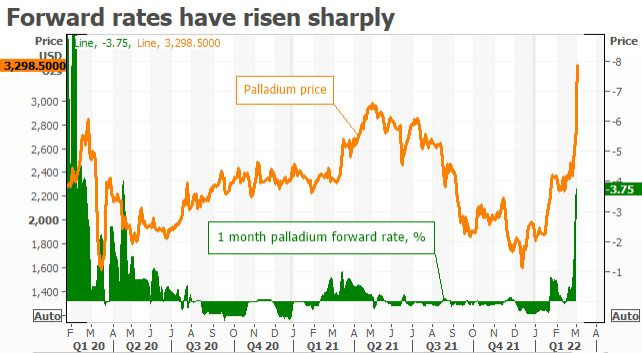
Inventories of palladium are already drawn down by years of undersupply caused by tightening regulations that forced auto makers to embed larger amounts of metal in gasoline-engine exhaust pipes to neutralise emissions.
Rising prices put pressure on speculators to abandon bets on lower prices, which helps push prices higher. As of March 1, speculators held a net short position on the NYMEX exchange of 904 contracts representing 90,400 ounces.
Graphic: Palladium speculative positioning,
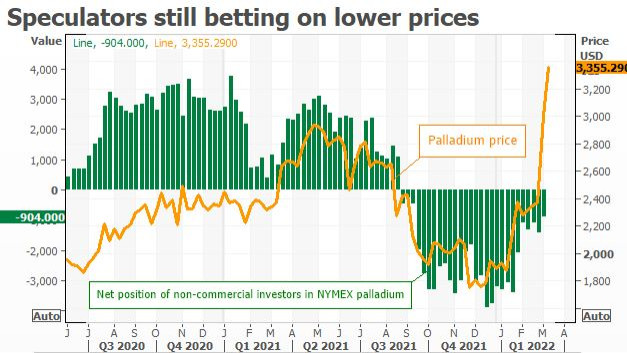
Most Russian palladium is mined in Siberia by Norilsk Nickel (Nornickel), which has not been sanctioned.
Nornickel said it was "committed to do our best to fulfil our obligations to our customers, partners, employees, indigenous peoples of the North."
Graphic: Russia's share of palladium production,
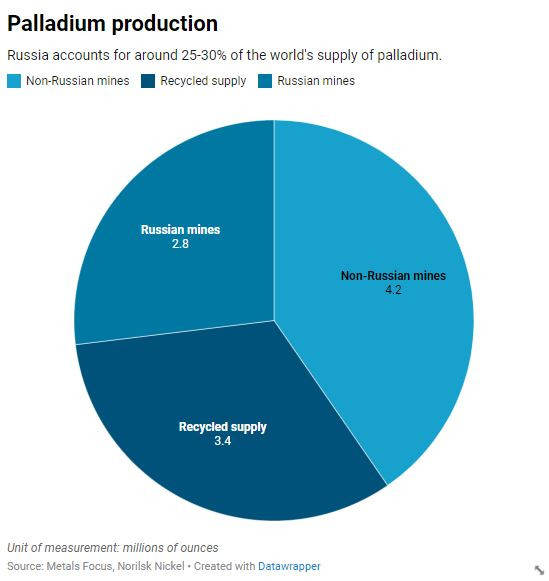
Many analysts expect palladium prices to come down once supply chains adapt to sanctions.
"Our base case assumes that these issues (of restricted supply) last no longer than a month, and alternative ways to ship metal are found," said analysts at Citi, predicting average prices of $2,200 an ounce in the fourth quarter.
Citi forecast the roughly 10 million ounce a year market would see deficits of 446,000 ounces this year and 176,000 ounces in 2023 and a surplus of 28,000 ounces in 2024.
In the longer term, palladium demand is expected to fall as the market share of zero-emission electric vehicles rises. Graphic: Palladium deficits,
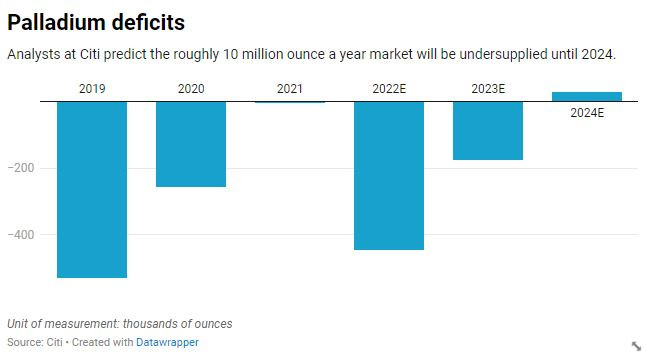
© Copyright Thomson Reuters 2024. All rights reserved.




















